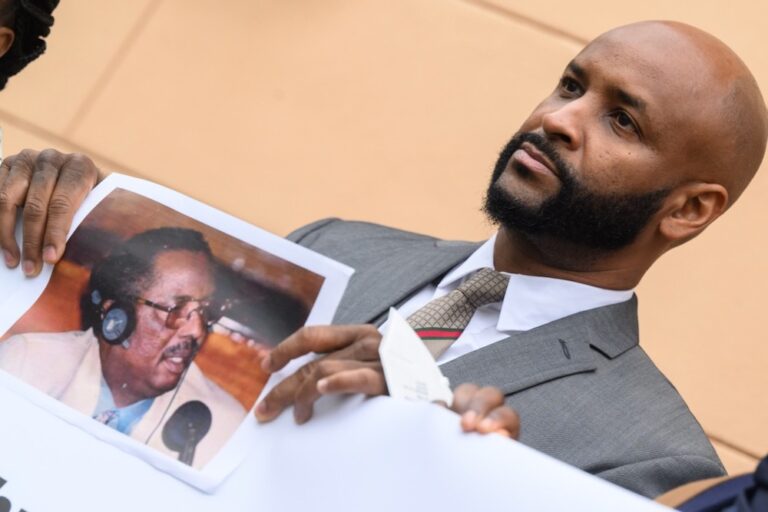IFJ raised serious concerns about the fairness of the trial at the Gambian High Court of the seven journalists charged with six counts of seditious publication and criminal defamation.
(IFJ/IFEX) – 23 July 2009 – The International Federation of Journalists (IFJ) today raised serious concerns about the fairness of the trial at the Gambian High Court in Banjul of the seven journalists charged with six counts of seditious publication and criminal defamation after the judge, Justice Wowo, overruled all the applications made by the defence team.
“Judge Wowo is showing little impartiality. By conducting the hearing in camera, he is denying people all over the world who have been following this trial the ability to hear the arguments. This is a gross miscarriage of justice and the trial must be opened to observers,” said IFJ President Jim Boumelha.
The seven defendants – Gambia Press Union General Secretary Emil Touray, its Vice President Sarata Jabbi-Dibba, and Treasurer Pa Modou Faal together with Pap Saine, publisher, Ebrima Sawaneh, editor of The Point newspaper; Sam Sarr, editor and Abubcarr Saidykhan, reporter at the Foroyaa newspaper – were arrested and charged on three accounts of publishing seditious publications and two accounts of criminal defamations.
According to the Gambia Press Union (GPU), an IFJ affiliate, the journalists appeared before the court on Tuesday 22 July, for a hearing ordered by the judge to be held in camera for the third day running. The GPU says that their lawyers made an application for the presiding judge, Justice Wowo, to withdraw from the case, arguing that their clients have no confidence about getting a fair trial from him. The application followed the judge’s refusal to rule on the lawyers’ earlier submission to dismiss charges against the journalists on the grounds that they were unfounded. However, Justice Wowo denied the application and ruled that the trial should continue.
The defence team also applied for the proceedings to be held in public rather than in camera since the only witness listed in the indictment as security personnel had already testified. This was also denied by Justice Wowo.
The IFJ, in collaboration with trade unions and human rights organisations is building support for the journalists in a series of protest activities in Europe and Africa, as part of the global campaign to free the seven journalists. On the third day of the trial, marches were organised and press conferences were held in various countries, in protest against the trial of the journalists, including a press Conference in Dakar, Senegal. In Glasgow, Scotland local journalists and Gambian exiles held an all-day vigil in the city centre to coincide with the court hearing.
On Monday 20 July, the National Union of Journalists in the UK and Ireland (NUJ), the British Trade Union Congress (TUC) and Amnesty International held a protest at the Gambian High Commission in London attended by dozens of demonstrators who called for free speech and a free press in the Gambia. The protest, held to coincide with Freedom Day in the Gambia, highlighted the ongoing trial of the seven journalists and the ‘disappearance’ of another, Ebrima B. Manneh.
“It is not too late for the Gambian authorities to drop these trumped-up charges and release the seven journalists. Our protest will continue all over the world until these journalists are freed,” added Boumelha. “How can the Gambian government be taken seriously when it celebrates freedom when journalists are harassed and jailed? Freedom of speech and freedom of association are fundamental human rights.”


